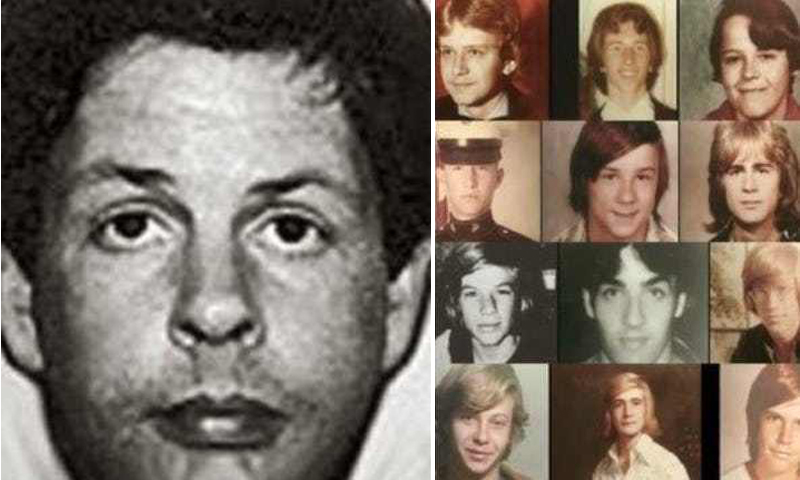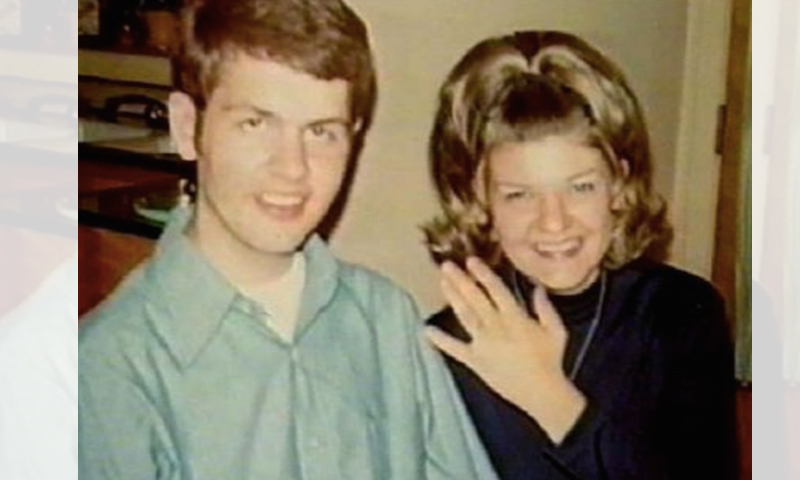Suspected of killing up to 20 men, Herb Baumeister was making gay bars his hunting ground long before Bruce McArthur starting using the same MO…
By Courtney Hardwick
If you’re a true crime fan, you know there’s no shortage of books, documentaries, podcasts and original reporting dedicated to the victims of violent crimes and the people who commit those crimes. At the same time, we know the cases that get the most attention are usually ones that are committed against white, middle class, cisgender people. Meanwhile hate crimes, including murders of gay, trans and non-binary people are on the rise. Queer Crime is a monthly column focusing on true crime with an LGBTQ+ spin whether it’s the victim or the perpetrator.
This month, we have the story of suspected serial murderer, Herb Baumeister. If you’ve never heard of him—you’re not alone. Baumeister committed suicide in 1996 before he could be questioned about his involvement in the disappearances of 11 gay men from the Indianapolis area over the course of a couple years in the early 90s. That means there was never an arrest, never a trial, and never any true justice for the men he was suspected of killing.

Although there will always be mystery surrounding Baumeister, there are a few pieces of key evidence—and one brave witness—who make the case for Baumeister being guilty pretty compelling.
To his community, Herb Baumeister was a strait-laced business-owning family man living on his 18-acre estate, Fox Hollow Farms in Westfield, Indiana. He married his wife Julie right out of college and they had three kids together. But there was another side to him that he kept hidden: Baumeister would often visit gay bars in Indianapolis, about a 40 minute drive from where he lived. Although Julie claims she never suspected her husband might be gay, she has admitted that they were only intimate five or six times over the course of their 25 year marriage.

In 1992, police had been investigating the disappearances of gay men from the Indianapolis area when a man named Tony Harris came forward claiming that he’d met a man who called himself “Brian Smart” at a gay bar. Harris told police that he believed Smart killed his friend, Roger Goodlet, who was missing at the time. Harris reported that he had gone with Smart to his home and Smart had attempted to kill him by taking erotic asphyxiation too far. Harris’ experience is covered in detail in Ryan Green’s book You Think You Know Me and an episode of the A&E series Investigative Reports called The Secret Life of a Serial Killer.
According to Harris, Baumeister talked about having killed people and was confident he wouldn’t get caught because he had been operating for years without detection. His victims, men who frequented gay bars in 80s and 90s, often fell through the cracks or were considered to live a “high risk lifestyle”. Toronto’s Bruce McArthur is a more recent example of a serial killer who took this victimology a step further by choosing victims who were also immigrants and/or closeted, making them even more vulnerable.
Despite Harris’s cooperation, police weren’t able to locate Brian Smart or his home and they determined he’d used a fake name. It wasn’t until three years later that Harris spotted the man out at the bar again and managed to write down a license plate number. The police then identified “Brian Smart” as Herb Baumeister.
When approached by police, both Herb and his wife Julie refused to allow a search of their property, but Julie was already starting to suspect something was going on with her husband. In The Secret Life of a Serial Killer, Julie recounts how a few years before police paid her a visit, her 13-year-old son Erich had found a human skull in their backyard. When she asked Herb about it, he claimed it was part of skeleton belonging to his father, a doctor who had studied anatomy in college. She had believed him at the time and said nothing. But now she wasn’t so sure.
Whether they refused to acknowledge their suspicions or they genuinely never had any, it’s not uncommon for wives of serial killers to claim they never suspected a thing. Dennis Rader, aka BTK’s wife turned a blind eye to all the signs her husband was a sadistic killer for years. And John Wayne Gacy’s wife somehow lived in the same house as the rotting remains of her husband’s victims and never thought to question him about the foul smell coming from their basement. According to Julie Baumeister, her husband was an upstanding citizen and a nurturing, if somewhat distant, husband and father.

Still Julie had her limit. In June of 1996, Julie allowed police to search the Fox Hollow Farms property when Herb was out of town. They quickly found the remains of eleven different men and a warrant was put out for Herb’s arrest—but he never returned home. Herb Baumeister’s body was found in his car on July 3, 1995 near Grand Bend, Ontario. He had committed suicide by shooting himself in the head. He left a suicide note detailing his failing marriage and business but mentioned nothing about the murders or the remains found on his property.
As the investigation continued after his death, Baumeister also became the prime suspect for a series of murders along Interstate 70, the main highway linking Indianapolis and Columbus, Ohio—a route Baumeister often took. The bodies of nine men were found along the highway in the early to mid 80s, most of them linked to the Indianapolis gay scene.
Today, Fox Hollow Farms is infamous as the site of multiple murders and a dumping ground for human remains. It has become a dark tourist attraction for people interested in true crime and hauntings and many claim to have had paranormal experiences there.
While there will never be a confession straight from Baumeister, authorities are confident he is the one they were looking for. Tony Harris was lucky to escape Baumeister’s true intentions and leave Fox Hollow Farms alive that night and it’s thanks to him that the murders stopped when they did.
For more of Courtney Hardwick’s fascinating QUEER CRIME series click here.






Scott B. / 19 October 2023
Exactly! I noticed right away that those were Gacy victims. The writer should have done better research.
Marni Martine / 07 December 2022
The ‘victim’ photo display aren’t Baumeister’s victims. Those are the victims of John Wayne Gacy.